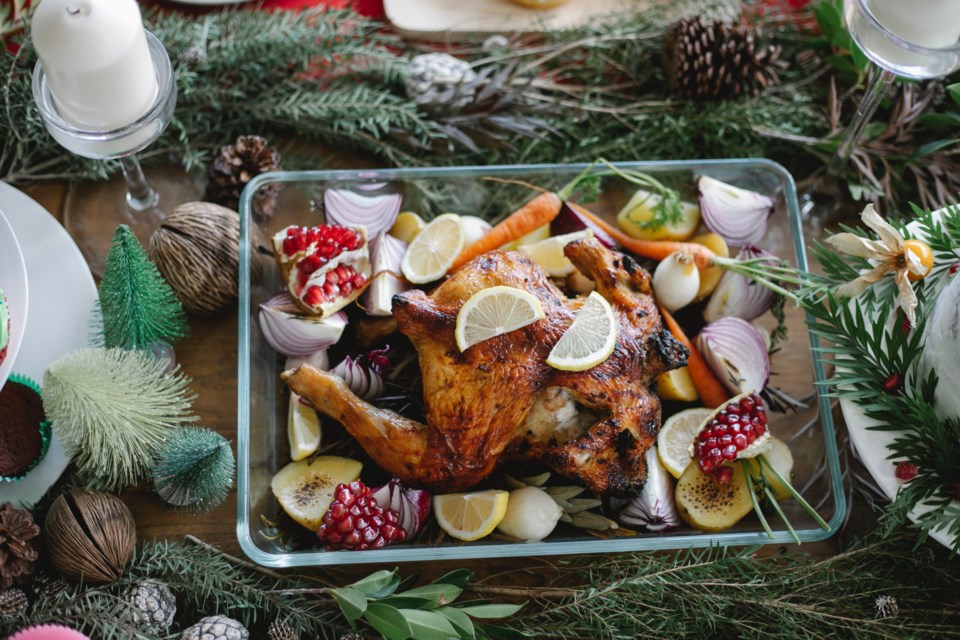In December so many of us celebrate the light whether it be in the form of a deepa, a menorah or the return of the light or a star.
As we gather to celebrate the season we show our love by sharing food. Making food for each other means we also have to think about food safety. We pay extra attention to handwashing as we prepare food and carefully store prepared foods safely before sharing them.
Extended families adjust their recipes to accommodate loved ones with food allergies and intolerances preventing foodborne illness or food poisoning.
Whether it’s the big family dinner or the cookie exchange, sharing food can also be cost effective as everyone contributes something. Even the leftovers can help reduce our current and difficult food costs. Safely sharing leftovers ensures no food, nor the money used to buy it, is wasted.
Guelph is fortunate to be the knowledge hub for nutrition and food safety information. The Canadian Research Institute for Food Safety offers expertise in foodborne illness. In a recent article they remind us of the importance of keeping our food out of the temperature danger zone by encouraging us to keep hot foods hot and cold foods cold.
The danger zone is between four and 40 degrees Celsius or 40 to 140 degrees Fahrenheit. The danger zone is neither too hot or too cold and the “just right” temperature allows bacteria to grow quickly.
During the holidays we can show our love by practicing food safety. The gift of a probe thermometer is worth the $5 to $15 spent if it helps ensure your food is safe to eat. For instance, a turkey stuffed with dressing needs to reach the temperature of 180°F when the meat thermometer is inserted into the thickest part of the thigh meat.
Rice dishes are popular in some of the celebrations of light and they can also be a food safety concern. Eat your rice while it is hot (above the danger zone for food four to 60°C or 40 to 140°F). After cooking, cool any leftover rice in a shallow pan. Spreading out the rice allows it to cool more quickly and doesn’t leave a “hot spot” in the middle of the rice that may allow bacteria to grow.
After cooling, move the rice into a fridge within one to two hours of cooking. When you reheat the rice you’ll want to make sure it reaches 165°F to prevent foodborne illness.
Careful planning and storage of the leftovers does help with your food costs.
For instance, that delicious turkey sandwich is best consumed within the first three days of refrigeration of the leftover turkey and side dishes. If you know
you’ll have more leftovers than three days worth, consider freezing the leftovers.
You could even invite your holiday guests to bring a cooler bag and ice pack to take some delicious leftovers home with them.
Action Read Community Literacy Centre is a well-established Guelph organization sharing literacy with many people in our city. As a community of “people helping people” they connect learners and volunteers to work toward learner goals.
One of the programs offered at Action Read is the Food Handler’s certification.
We all benefit from food safety and supporting Action Read and the people learning about Food Safety keeps us all safe.
Consider supporting great organizations like Action Read during this holiday season. You can connect to them here or by calling 519-
836-2759.



